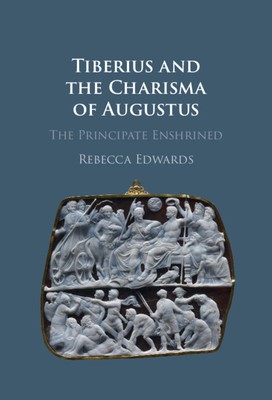
- We will send in 10–14 business days.
- Author: Rebecca Edwards
- Publisher: Cambridge University Press
- ISBN-10: 100947667X
- ISBN-13: 9781009476676
- Format: 15.2 x 22.9 x 1.6 cm, kieti viršeliai
- Language: English
- SAVE -10% with code: EXTRA
Reviews
Description
The historian Tacitus began his Annals with the death of Augustus. He considered this date, not Actium, to be the pivotal moment in the crystallization of 'rule by one man.' This book considers the role played by Augustus' successor Tiberius in preserving the system created by the ultimate victor of Rome's civil wars. Drawing upon the work of sociologists and political scientists, it uses the lens of the routinization of charisma to demonstrate how Tiberius' reverence for Augustus and preservation of his policies enacted lasting political change. Tiberius' encouragement of the cult of Divus Augustus and his own refusal of divine honors carry over into other aspects of his reign, where Tiberius recedes into the background, permanently withdrawing from Rome. The charisma of Augustus protected his family, the domus Augusta, and the entire empire, even after his death. This enshrined the position of Augustus as a permanent institution, the principate.
EXTRA 10 % discount with code: EXTRA
The promotion ends in 23d.06:54:37
The discount code is valid when purchasing from 10 €. Discounts do not stack.
- Author: Rebecca Edwards
- Publisher: Cambridge University Press
- ISBN-10: 100947667X
- ISBN-13: 9781009476676
- Format: 15.2 x 22.9 x 1.6 cm, kieti viršeliai
- Language: English English
The historian Tacitus began his Annals with the death of Augustus. He considered this date, not Actium, to be the pivotal moment in the crystallization of 'rule by one man.' This book considers the role played by Augustus' successor Tiberius in preserving the system created by the ultimate victor of Rome's civil wars. Drawing upon the work of sociologists and political scientists, it uses the lens of the routinization of charisma to demonstrate how Tiberius' reverence for Augustus and preservation of his policies enacted lasting political change. Tiberius' encouragement of the cult of Divus Augustus and his own refusal of divine honors carry over into other aspects of his reign, where Tiberius recedes into the background, permanently withdrawing from Rome. The charisma of Augustus protected his family, the domus Augusta, and the entire empire, even after his death. This enshrined the position of Augustus as a permanent institution, the principate.


Reviews